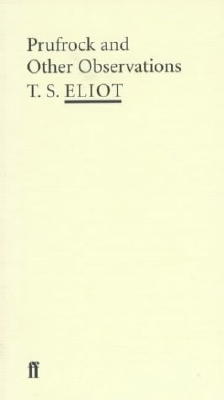I read Agatha Christie’s Murder on the Orient Express today.
Which made me think about was how implausibility is a shifting concept. If you’re being flippant, it’s pretty easy to read an Agatha Christie mystery today and wonder how these could be renowned as great mystery stories. With ridiculous sounding clues and bizarre assumptions. But we are often reminded by still-rapt critics that we need to remember classic works as “in their time”, when we later look down on fundamental authors/artists/directors in a genre as making content that is pat or boring and predictable. Because it is so easy to forget that much of what was once extraordinary becomes ordinary eventually.
The clues in an Agatha Christie novel aren’t necessarily ridiculous or obvious or implausible, they’re just out of step with where we are now. If you live in a world of affordable international flights and global pop culture and fashion, it might, for instance, seem bizarre to suggest that you wouldn’t recognize someone you hadn’t seen in only a couple of years. But in a time of voyages by sea, a stricter divide between American and European fashions, and more pronounced differences between castes and cultures, it’s much easier to imagine that a person you had known as a girl who since grown into a cultured lady while abroad, might be unrecognizable. Or that using the phrase “long distance phone call” would be unusual. Or that you could derive clues based on the particular duties and stations of servants and aides and governesses.
In the case of Murder on the Orient Express, there are a few plot points which are timelessly implausible, but I think they are also part of their time, just in a different way — in that the genre itself is embedded in when it was written, and the genre was escapist. Not the reality tv stories the modern world expects (where we want every detail to be plausibly “that could happen here” chilling), but slightly fantastical. With the world Poirot inhabits being a recognizable but just a bit more elegant and over-the-top version of our own. Princesses and Counts and embroidered kimonos and a Belgian inspector with a waxed moustache.
In a different direction — I’ve heard people complain about how old-fashioned mystery novels don’t sufficiently allow for audience participation. How Sherlock Holmes stories have an end of book reveal that you as the reader could not possibly have figured out. And now I know that is true of Agatha Christie as well. There were clues which, even if you were intimately familiar with the time and place, you either weren’t told about, or not told enough about. The particular location of a smudge or a thing-out-of-place, the direction someone was walking or the colour of their hair, the shape of their pipe.
This sort of thing used to drive me nuts. I like to solve puzzles, and I felt shortchanged when a book would be solving a puzzle using clues that were kept hidden from me. Like doing a crossword with someone who fails to mention a word in the clue is capitalized, or that there is an abbreviation in brackets after it.
“The body–the cage–is everything of the most respectable–but through the bars, the wild animal looks out.”
But not anymore. Apparently, I’m over it.
Because reading a mystery book, this kind at least, is to me not about solving it. Solving it first, or even catching the subtle but critical clue. That’s a little like solving a math problem over someone’s shoulder. It’s all big talk from the cheap seats. But it is a different part of your brain that can follow-along than can do. If the worker of the equation were to suddenly walk away and ask you to continue solving it, you may suddenly find yourself at a loss. You might be able to pick it up and keep going, but you might also be surprised to find that you had actually been working it out a little bit behind the person holding the pen. Like singing along to a song, thinking you know the lyrics, when it cuts out and you realize abruptly that you don’t. Likewise with a mystery novel. It might all seem perfectly obvious when you read along as the inspector begins to draw the pieces together. But put the book down and try to work out the exact solution by sorting through the clues you’ve been given, and that’s something entirely different.
I know I’m good with puzzles, and deductive and inductive reasoning. I also know that there are many many people much better at it than I am. And I enjoy watching them work. I don’t particularly want to assist. I enjoy watching Poirot sort through the problem. Like watching any expert work. Watching as his assistants make the assertions and take the steps and ask the questions that I would want to make, ask and take. And then watching him slow us all down and point out all the assumptions that we haven’t even noticed we’re making. It’s relaxing. Someone working through a problem with absolute, unwavering methodicalness. The elegance of the approach, not subject to the skips and jumps that a more biased mind inflicts on the problem. It’s beautiful.
Not to mention that parts of the book are written so beautifully. In what I had patronizingly thought of as pulpy fiction (if classic pulpy fiction), I kept finding description and dialogue that I found so enjoyable that I was grabbing lindor wrappers and bits of envelopes to mark pages. And while the historical parallels with the Lindbergh kidnapping, and a couple of very poorly chosen YouTube clips of the films, have coloured my enjoyment of Murder as pure fiction, I still give it two-thumbs up as an under-a-blanket-cup-of-tea way to pass an in-between holiday day.
“Tout de même. I can hardly believe it. It is not dans son caractére, and when you have said that, you have said everything.”


